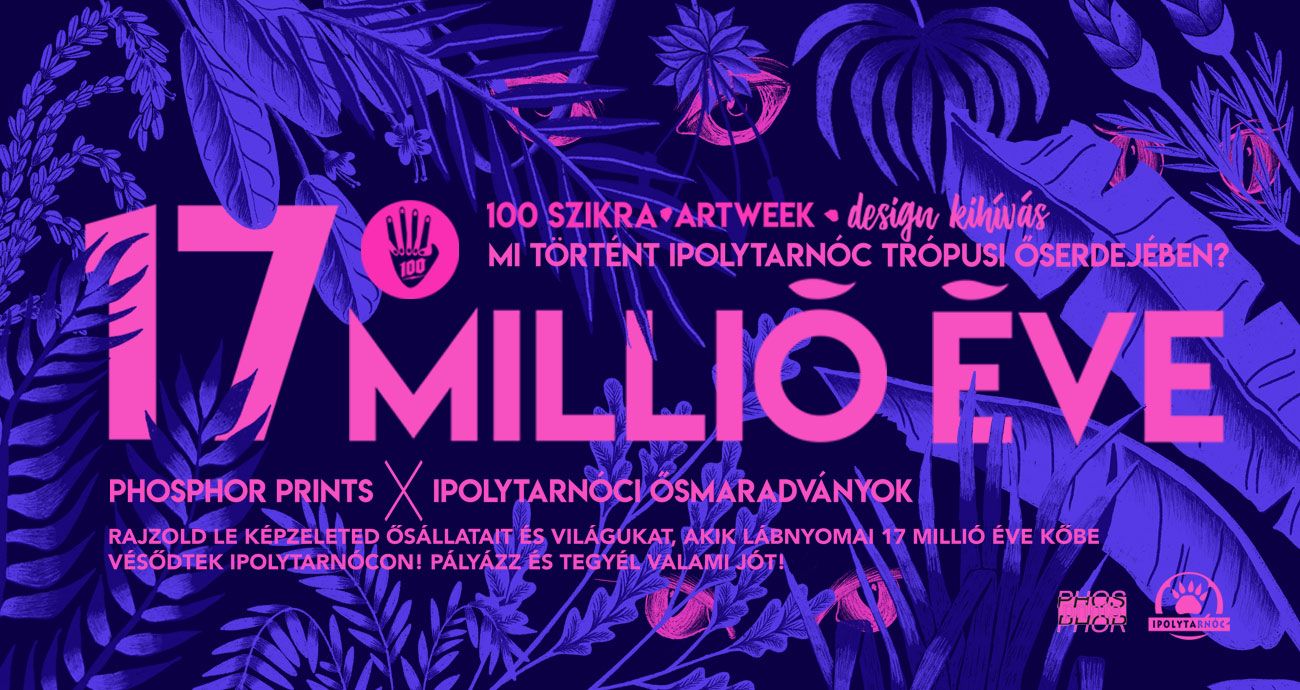What happened in the tropical jungle of Ipolytarnóc 17 million years ago? Our planet, before mankind. The shadow of a bear-dog behind the white sandstone cliffs, while the giant palm leaves are flapped by the cool evening wind rising at sunset. The soft breath of a saber-toothed tiger can be heard in the distance. Or something completely different. How do you imagine it? Be the silent observant of your own, fictitious primal nature, and capture it in the framework of the charity design contest announced by 100 Sparks ARTWEEK, Phosphor Prints and Ipolytarnóci Ősmaradványok (Ipolytarnóc Fossils). We interviewed Zsófi Fenyvesi, the art director of 100 Sparks about the one-week event and this year’s design challenge.
The event started off as a house party in 2017, with bikers. And then the more times the founders of the event went to Ipolytarnóc, the more they felt that 100 Sparks would grow out to be a movement examining the impacts of intellectual capital on the life of a small village. How does the local community respond to this? Their aim is to get answers for these questions, while they create an organically built event based on trust and striving for value creation – every change starts with a spark, and the spark is there in all of us.
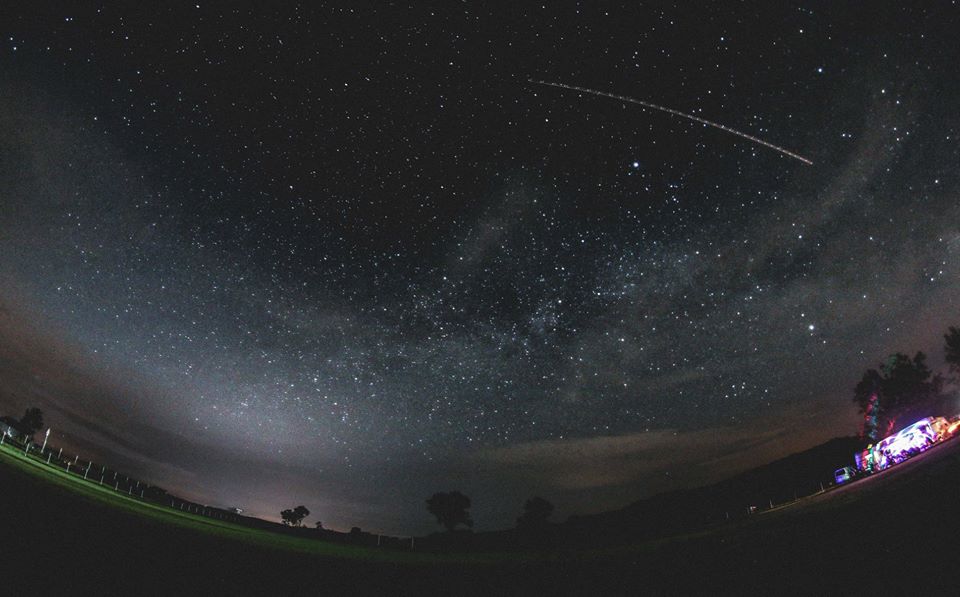
“This place offers the feeling of pristineness and purity. Seriously, as if time had stopped, and you could go back to an idyllic childhood where you have nothing else to do but collecting sticks on the bank of the Ipoly river, run on a green field under the fluffy clouds, riding your bike swiftly on dusty dirt roads and laughing a lot in the meantime. Many times we cannot truly appreciate things like that in our own environment due to old habits. We need a new perspective, a traveler who points out this treasure. We feel that we are travelers like this at Ipolytarnóc. The dwellers of the village were very open towards the initiative, and as time goes by, more and more friendships are born, trust is built and the doors are opening up. This is not something that can be done quickly. We consider it important that we are not there to colonize. All this is not about the downtown kids going down to trash the countryside. There is no such thing as US and THEM. There is only US, together” – told us Zsófi Fenyvesi in a previous interview.
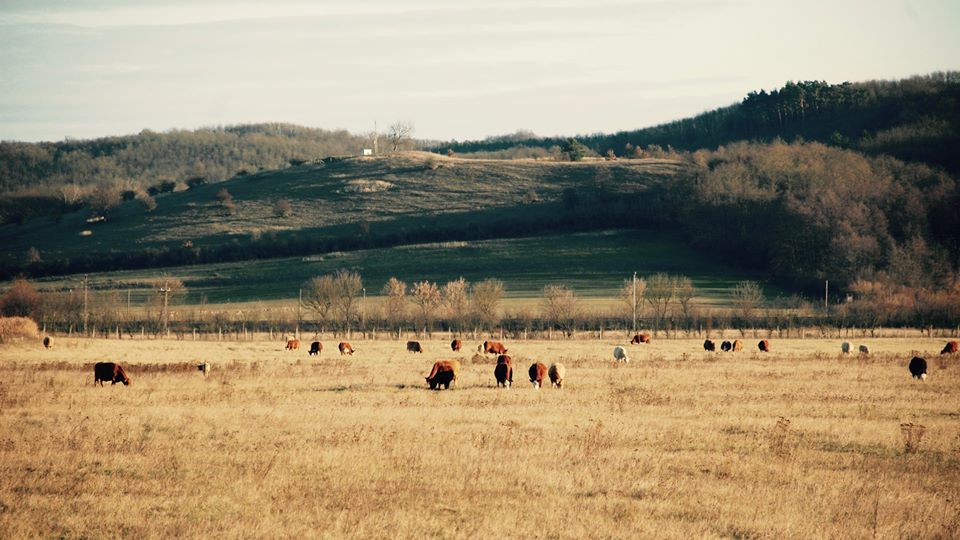
The event brings an unalterable change in the life of Ipolytarnóc, in the good sense of the word. The nature art installations implemented during the artweek strengthen community cohesion on the one hand, and also highlight the beauty of the land. This place truly creates the sense of arrival in every visitor. Bathing in the Ipoly river, doing a great hike, looking for million-year-old footprints in the organized tours of the Ipolytarnóc Fossils park: everything is there.
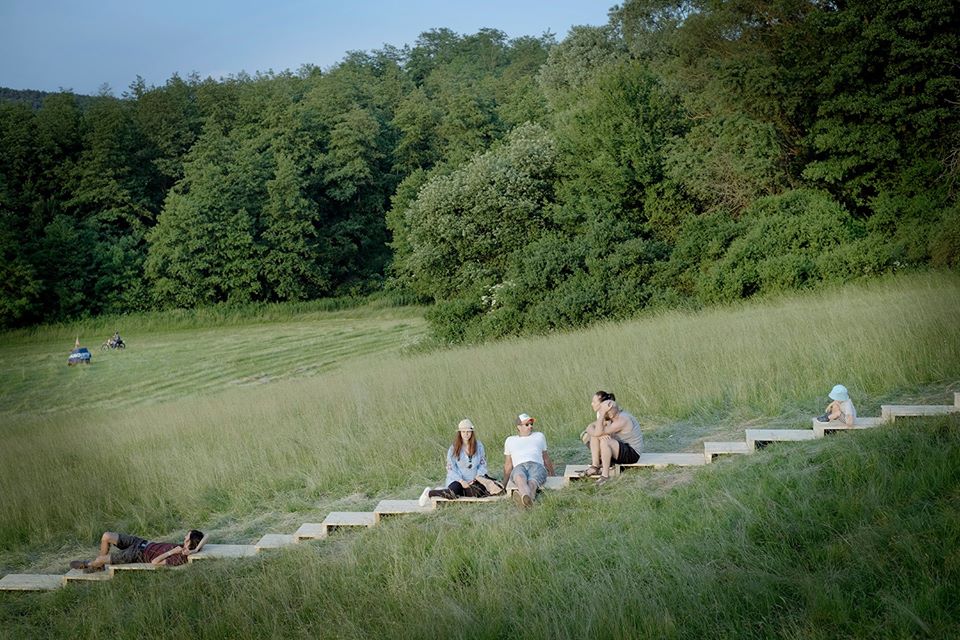
Not too many people know this, but this land is the “ancient Pompeii” itself. We can find ancient fossils here onto this day due to a volcano catastrophe that happened almost 20 million years ago as sea beds covered in shark teeth, the giant, fossilized trees of the subtropical forest or exotic plant imprints. The latest design challenge of 100 Sparks responds to these special environmental qualities, too. After last year’s “Be a spark” typography contest, in 2020, we’d rather want to raise the attention of illustrators and drawers.
“The deeper we dived into this section of ancient history and the more times we saw the ancient fossils at Ipolytarnóc with our own eyes, the more inspiring this topic seemed to us. We read many scientific articles, but there still are some pieces of the puzzle missing – they didn’t find any skeletons next to the footprints imprinted in stone right away, so many times the types of the animals are only assumed. We find these missing pieces the most exciting. We invite the designers to the waterfront of a pristine forest from 17 million years ago to draw the imaginary flora and fauna” – Zsófi told us.
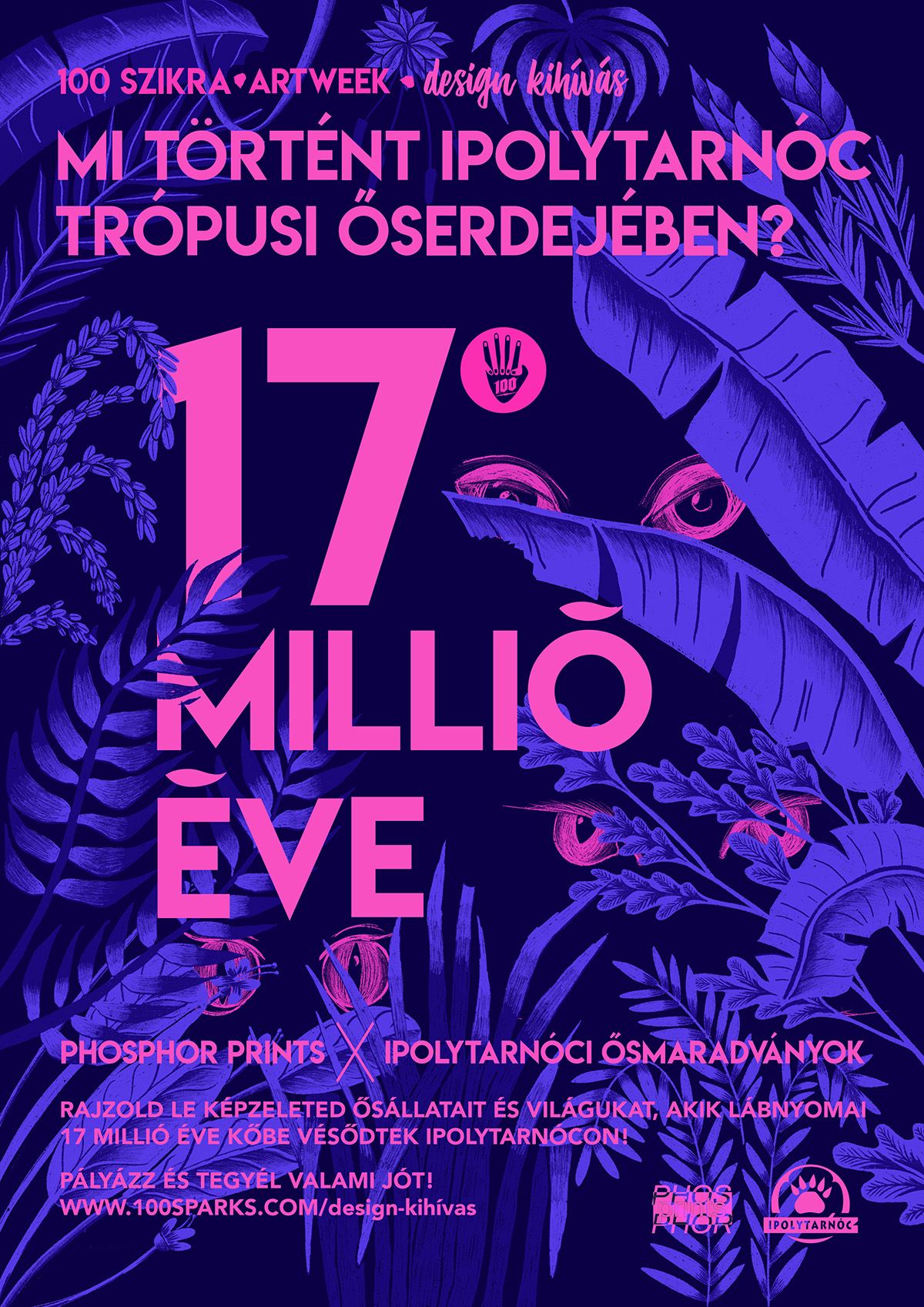
The competition What happened in the tropical jungle of Ipolytarnóc 17 million years ago? was created by 100 Sparks, the team of Ipolytarnóc Fossils, and Phosphor Prints famous for their vivid, limited editions prints. They have been keeping an eye on the works of Diána Ghyczy and Andrea Huszti for some time now, and they were really happy about the collaboration. “Finally someone makes our old dream of creating cool, limited edition thematic graphics in relation to the event come true” – adds Zsófi.
The works considered best by the jury will be realized in the form of large, limited edition risoprints, and the proceeds of their sales will be used for a pre-determined local community goal. An exhibition will be organized of the works submitted first in Ipolytarnóc and later on in Budapest, too.
Deadline for application: August 20, 2020 For further info about the competition, please click here!
This year, the 100 Sparks| Artweek and Backyard Bash will be held between August 29 and September 5, 2020 in Ipolytarnóc. For the detailed program and continuously updated info, make sure you keep an eye on the Facebook and Instagram account of the event!
100 Sparks | Web | Facebook | Instagram

Groundbreaking lecture hall | Qarta Architektura
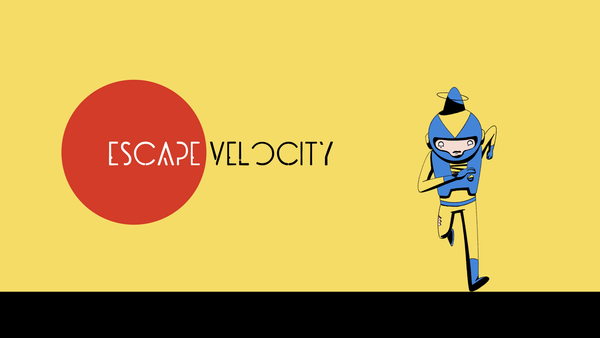
Escape Velocity | Tamás Rebák’s short film










